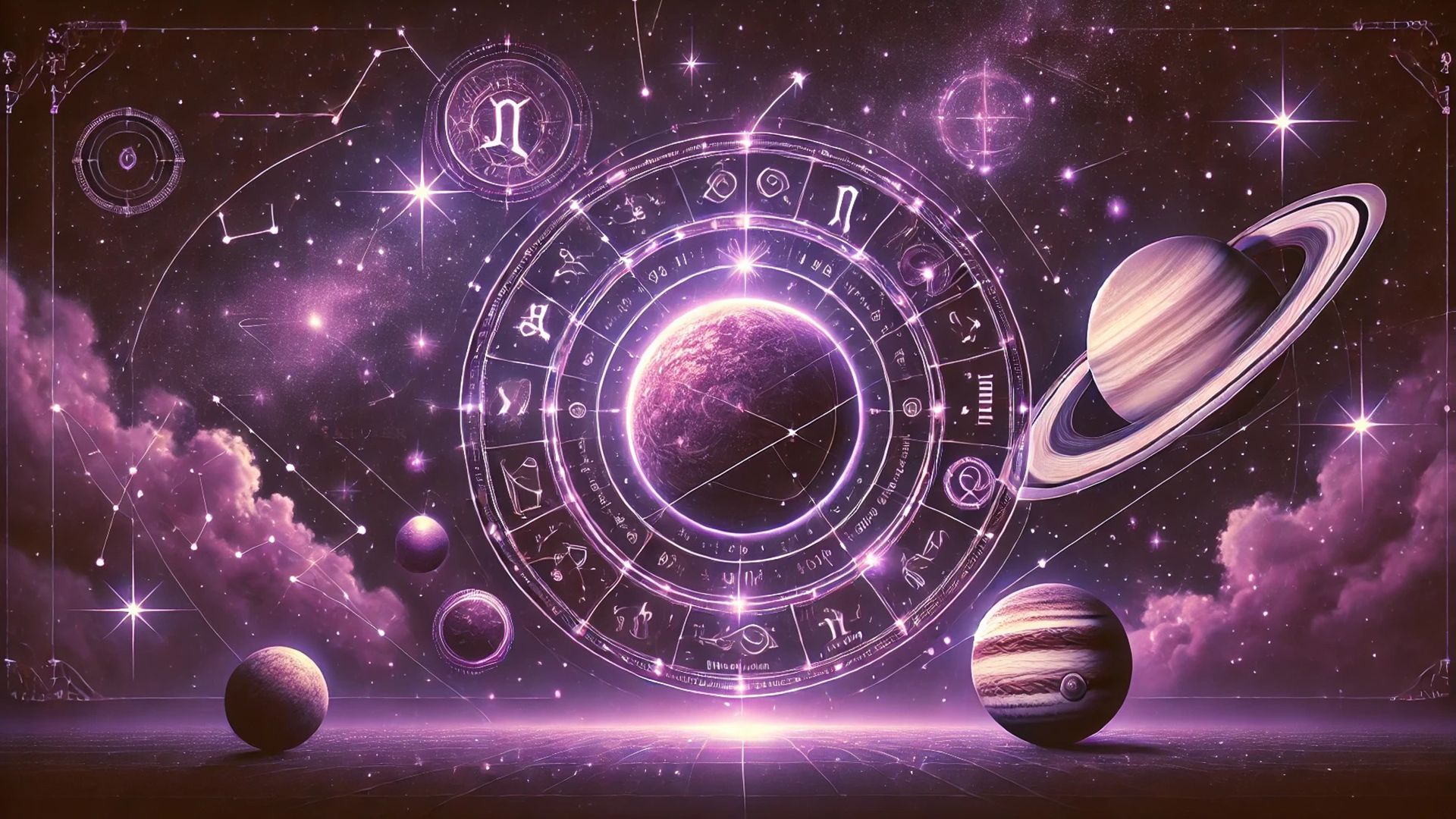In astrology, planets aren't just cosmic objects—they're powerful symbols with meanings deeply rooted in mythology.
The Role of Planets in Astrology
Astrologically speaking, planets rule different aspects of human life—some govern our emotions, while others shape our mental abilities and relationships.Where planets sit in zodiac signs and astrological houses at birth determines our temperament, natural tendencies, and life possibilities. Here's how each planet influences us:
- Sun – self-identity, vitality
- Moon – emotions, subconscious
- Mercury – communication, intellect
- Venus – love, beauty
- Mars – action, passion
- Jupiter – growth, optimism
- Saturn – discipline, responsibility
- Uranus – innovation, change
- Neptune – dreams, intuition
- Pluto – transformation, power

The Sun
The Sun represents our core identity and what drives us. It fuels our need for self-expression and making our mark, shaping our ambitions and what matters most. It also governs our vitality and overall energy. Read more about the characteristics of the Sun further.Moon
The Moon rules our emotional world and how we perceive things. It shapes our empathy, intuition, and memory. It's also connected to our past, childhood experiences, and family ties—revealing how we connect with loved ones and react to the world around us. Read more about the characteristics of the Moon further.Mercury
Mercury rules intellect, communication, and how we process information. It governs our thinking, learning, and communication skills. This planet influences every form of communication, plus our perception and analytical abilities. It's also linked to travel, commerce, and all kinds of exchanges. Read more about Mercury's characteristics below.Venus
Venus rules harmony, beauty, and love. It shapes our personal tastes, aesthetic sense, and appreciation for beautiful things, while also governing our material desires. Read more about Venus's characteristics further.Mars
Mars represents action, energy, and our fighting spirit. It drives our competitive nature, desire to win, and passion in all its forms. It also fuels our physical drive, athletic pursuits, and sexual energy—pushing us to take decisive action. Read more about Mars's characteristics further.Jupiter
Jupiter brings luck, prosperity, and expanded horizons. It rules education, wisdom, and spiritual development. This planet also governs travel, philosophy, and our quest for life's deeper meaning—supporting our drive for self-improvement. Read more about Jupiter's characteristics further.Saturn
Saturn represents discipline, structure, and life's toughest lessons. This planet pushes us to develop patience and take responsibility for our actions. Saturn forces us to confront reality, set meaningful goals, and work steadily toward them, creating clear pathways for personal development. Read more about Saturn's characteristics further.Uranus
Uranus embodies innovation, rebellion, and revolutionary change. Known as the planet of surprises and unexpected plot twists, it sweeps away stale thinking and champions bold, progressive ideas. Uranus sparks creativity and encourages us to think outside the box. Read more about Uranus's characteristics further.Neptune
Neptune rules our spiritual side, dreams, and the realm of illusion. This mystical planet enhances our imagination, intuition, and creative abilities. Neptune invites us to explore fantasy and find inspiration, but it can also create confusion and false hopes when its influence goes unchecked. Read more about Neptune's characteristics here.Pluto
Pluto governs deep transformation and intense psychological power. This planet deals with control, hidden forces, and changes we can't avoid. Pluto compels us to face our shadow side and society's darker truths, ultimately catalyzing complete reinvention and fresh starts. Read more about Pluto's characteristics here.In astrology, planets embody specific energies and personality traits, while houses represent different life areas. Knowing which house contained each planet at birth helps astrologers understand how planetary energies will play out in various aspects of someone's life. Learn more about what houses in astrology are here.


